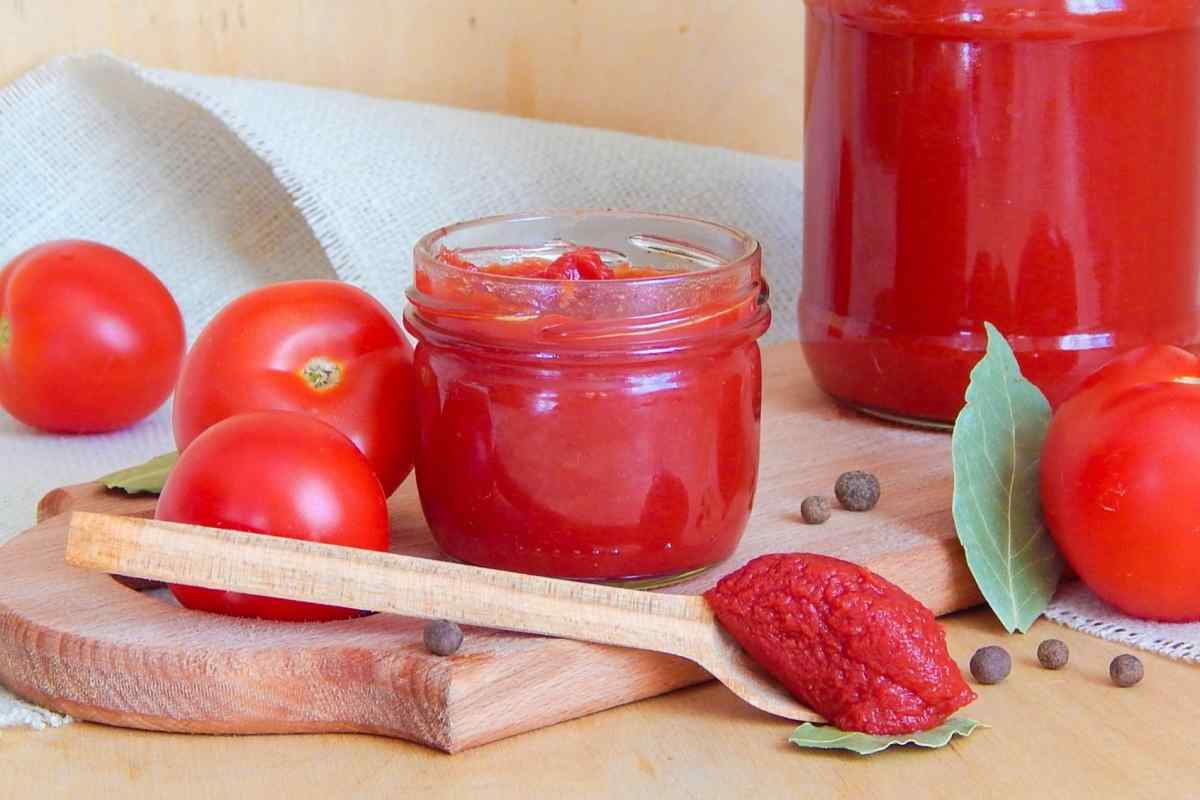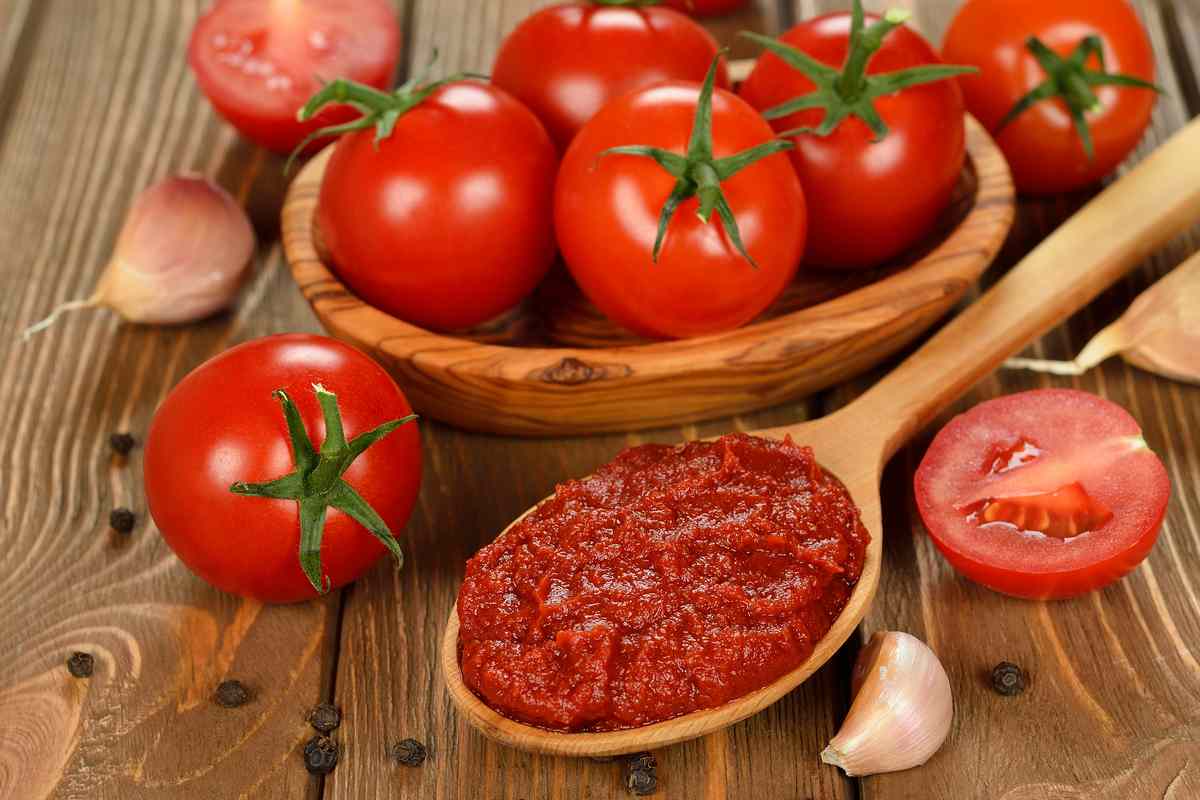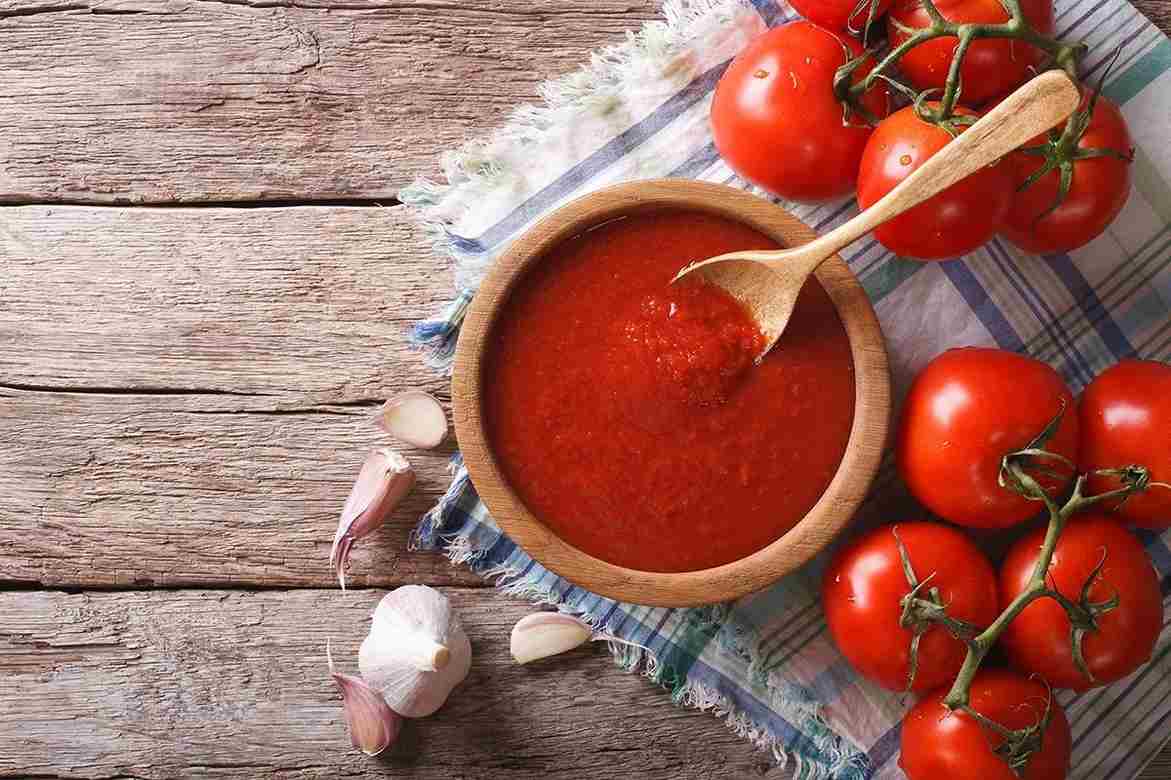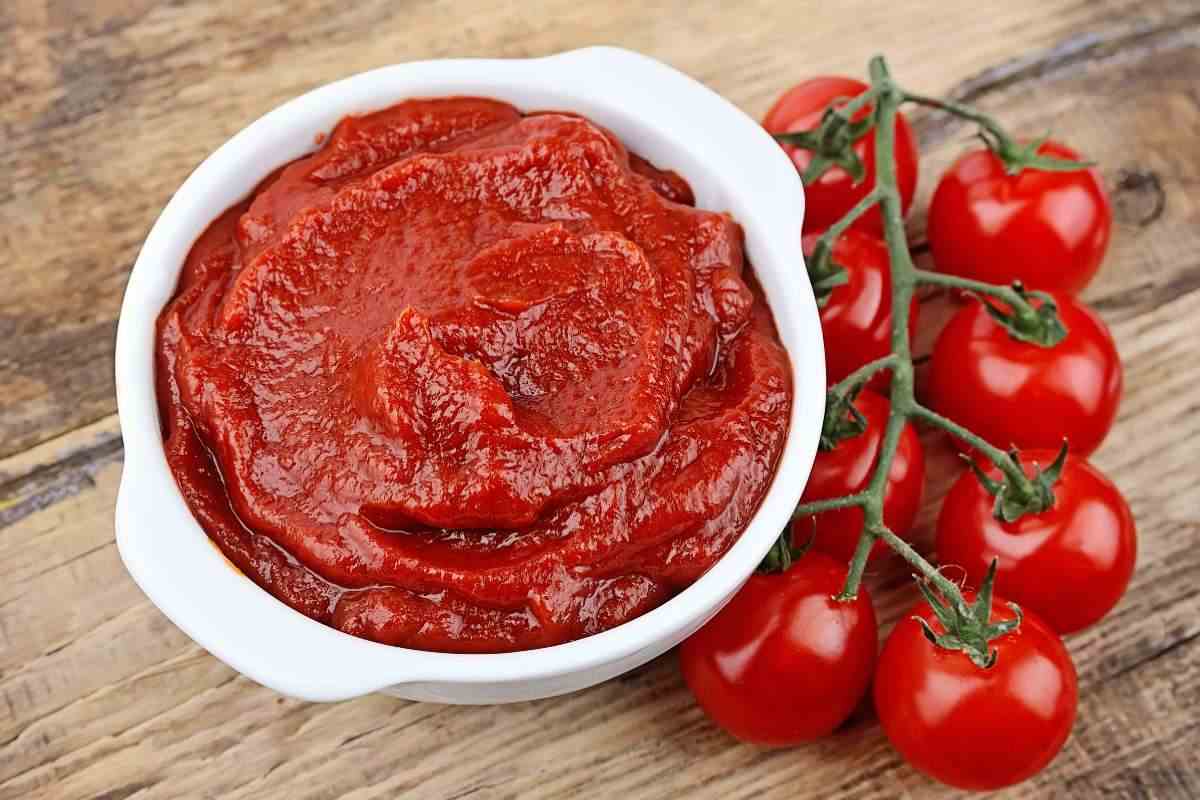It is essential for merchants to make a strong plan for launching a business regarding tomato paste and also other types of tomato products. This business plan details the investments, expenses, and potential returns that would result from establishing a tomato paste plant in Nigeria that produced high-quality products. The factory is going to start producing tomato paste that will be filled and packed in a sterilized bag of 70 grams. The plant will use the cold break method to make double concentrate tomato paste with a Brix content of 28%. The plant's installed capacity for the input of raw materials is 500 kilograms per hour of fresh tomatoes.  The analysis of the market and the level of competition The tomato is a popular vegetable that is actually classified as a fruit due to its high concentration of vitamin and mineral deposits. It is a good source of the antioxidant lycopene and is a common ingredient in the meals that are prepared in the homes of Nigerians. It can be added to salads, eaten fresh, or used as the primary ingredient in stews. It is projected that Nigeria produces 2.4 million tons of tomatoes per year, making it the leading producer of tomatoes in sub-Saharan Africa and the thirteenth greatest producer of tomatoes in the world. The fact that it has a relatively limited shelf life and a seasonal dual feature, which consists of periods of plenty followed by periods of shrinkage, has made storage a significant obstacle in the value chain of this nutritious vegetable or fruit. Despite the fact that numerous nontraditional storage systems have been implemented in the past, all of them have been shown to be insufficient and unreliable. The current annual production of tomato paste in Nigeria is approximately 1.7 million tons, but the country's need for tomato paste is approximately 3 million tons; therefore, Nigeria must rely on imports to make up the difference. The nation has the ability to manufacture tomato paste worth around one hundred million dollars in US currency per year. The demand gap has always been covered through imports of approximately one billion dollars' worth of tomato concentrate and paste each year. arguments in favor of getting involved in the business Due to the fact that Nigeria is the country that grows the most tomatoes in Africa, it has the potential to become an import market for tomato products that have been processed. Nigeria's domestic production sector is kept afloat by annual imports of tomato paste worth $1.5 billion dollars.
The analysis of the market and the level of competition The tomato is a popular vegetable that is actually classified as a fruit due to its high concentration of vitamin and mineral deposits. It is a good source of the antioxidant lycopene and is a common ingredient in the meals that are prepared in the homes of Nigerians. It can be added to salads, eaten fresh, or used as the primary ingredient in stews. It is projected that Nigeria produces 2.4 million tons of tomatoes per year, making it the leading producer of tomatoes in sub-Saharan Africa and the thirteenth greatest producer of tomatoes in the world. The fact that it has a relatively limited shelf life and a seasonal dual feature, which consists of periods of plenty followed by periods of shrinkage, has made storage a significant obstacle in the value chain of this nutritious vegetable or fruit. Despite the fact that numerous nontraditional storage systems have been implemented in the past, all of them have been shown to be insufficient and unreliable. The current annual production of tomato paste in Nigeria is approximately 1.7 million tons, but the country's need for tomato paste is approximately 3 million tons; therefore, Nigeria must rely on imports to make up the difference. The nation has the ability to manufacture tomato paste worth around one hundred million dollars in US currency per year. The demand gap has always been covered through imports of approximately one billion dollars' worth of tomato concentrate and paste each year. arguments in favor of getting involved in the business Due to the fact that Nigeria is the country that grows the most tomatoes in Africa, it has the potential to become an import market for tomato products that have been processed. Nigeria's domestic production sector is kept afloat by annual imports of tomato paste worth $1.5 billion dollars.  The fact that Nigeria prohibits the importation of fresh tomatoes is beneficial to investors there. The return margin on investment for regional manufacturers is between 17 and 35 percent. A high rate of urban development in Nigeria, which is expanding at an annual rate of 8%, is another factor that contributes to the need for processed and packaged tomato paste. Tomatoes may be grown throughout the year, which means that they are always available for production. Because of the growing and increasingly numerous population, there is a high inclination toward repeat business as well as demand. Although there is a substantial demand for the product in the country, practically all of the tomato pastes that can be found in the country's marketplaces have been imported from either China or Italy. Analyses of the Competition Due to the severe rivalry, the lead has been cut down to just a very small number of companies, while other local businesses are gradually establishing their presence in the market. Gino, on the other hand, has emerged as the new king over the course of the past few years, unseating De Rica as the leader after the latter had ruled the market like a behemoth for a considerable amount of time. Processing tomatoes on a small scale or at home is something that may be started by virtually everyone. The tomato is one of the vegetables that is consumed the most frequently all over the world. Additionally, people will take tomatoes in both their raw and cooked forms. The tomato is a prime example of a food that spoils easily. As a consequence of this, processing results in an extension of the product's life span. Starting this company won't be difficult at all. You can also deal with the production of a single value-added item or multiple things with varying degrees of complexity. Lycopersicum Esculentum is the term given in scientific circles to the tomato.
The fact that Nigeria prohibits the importation of fresh tomatoes is beneficial to investors there. The return margin on investment for regional manufacturers is between 17 and 35 percent. A high rate of urban development in Nigeria, which is expanding at an annual rate of 8%, is another factor that contributes to the need for processed and packaged tomato paste. Tomatoes may be grown throughout the year, which means that they are always available for production. Because of the growing and increasingly numerous population, there is a high inclination toward repeat business as well as demand. Although there is a substantial demand for the product in the country, practically all of the tomato pastes that can be found in the country's marketplaces have been imported from either China or Italy. Analyses of the Competition Due to the severe rivalry, the lead has been cut down to just a very small number of companies, while other local businesses are gradually establishing their presence in the market. Gino, on the other hand, has emerged as the new king over the course of the past few years, unseating De Rica as the leader after the latter had ruled the market like a behemoth for a considerable amount of time. Processing tomatoes on a small scale or at home is something that may be started by virtually everyone. The tomato is one of the vegetables that is consumed the most frequently all over the world. Additionally, people will take tomatoes in both their raw and cooked forms. The tomato is a prime example of a food that spoils easily. As a consequence of this, processing results in an extension of the product's life span. Starting this company won't be difficult at all. You can also deal with the production of a single value-added item or multiple things with varying degrees of complexity. Lycopersicum Esculentum is the term given in scientific circles to the tomato.  Additionally, it is a member of the Solanaceae family. In terms of global production, tomatoes are just behind potatoes when it comes to potatoes' competitor, potatoes. The primary nations that produce tomatoes are China, the United States of America, Italy, Turkey, India, and Egypt. The United States consumes almost three-quarters of its tomatoes in processed form. In the 1980s, pizza, spaghetti, and salsa were increasingly popular, which contributed to a slow increase in the consumption of processed tomatoes in the United States, which then accelerated in the later part of the decade. In addition, the importance of exports is expanding within the tomato processing industry in the United States. When it comes to processing tomatoes on its own, California is the leading producer in the world. Are there opportunities for profit in the tomato-processing industry? The processing of tomatoes typically includes the production of goods with additional value added to them. Tomato pulp, sauce, ketchup, puree, and juice are all included in this category. In a nutshell, tomato pulp and juice are used for a variety of purposes, including residential and industrial consumption. Because of improving living standards in urban regions and rapid urbanization in rural areas, there is an increase in the demand for foods that are already prepared to be eaten. Alterations in dietary habits along with the growth of the fast food industry have contributed to an increase in demand for processed tomato products. The most recent advancements in packaging technologies are also a consideration. In a nutshell, the Tetrapack, Brick packing, and multi-layer flexible plastic packaging all have a substantial influence on the growth of the firm that deals in processed tomatoes.
Additionally, it is a member of the Solanaceae family. In terms of global production, tomatoes are just behind potatoes when it comes to potatoes' competitor, potatoes. The primary nations that produce tomatoes are China, the United States of America, Italy, Turkey, India, and Egypt. The United States consumes almost three-quarters of its tomatoes in processed form. In the 1980s, pizza, spaghetti, and salsa were increasingly popular, which contributed to a slow increase in the consumption of processed tomatoes in the United States, which then accelerated in the later part of the decade. In addition, the importance of exports is expanding within the tomato processing industry in the United States. When it comes to processing tomatoes on its own, California is the leading producer in the world. Are there opportunities for profit in the tomato-processing industry? The processing of tomatoes typically includes the production of goods with additional value added to them. Tomato pulp, sauce, ketchup, puree, and juice are all included in this category. In a nutshell, tomato pulp and juice are used for a variety of purposes, including residential and industrial consumption. Because of improving living standards in urban regions and rapid urbanization in rural areas, there is an increase in the demand for foods that are already prepared to be eaten. Alterations in dietary habits along with the growth of the fast food industry have contributed to an increase in demand for processed tomato products. The most recent advancements in packaging technologies are also a consideration. In a nutshell, the Tetrapack, Brick packing, and multi-layer flexible plastic packaging all have a substantial influence on the growth of the firm that deals in processed tomatoes.  This type of packing makes it possible to carry tomato goods to expansive, far-flung, and unreachable locations. In addition to this, it is possible to store the items at room temperature for more than 4 months without any adverse effects. A Straightforward and Easy-to-Follow Roadmap for Beginning a Tomato-Related Enterprise Before beginning operations with your new company, you need first develop a sound business strategy. The first stage in designing a strategy for a business is to carry out research on the target market. Because the demand for a variety of items differs from place to place, it is essential to have a solid understanding of the current climate in your location. You should also make an attempt to recognize the brands and products that hold the most market share in this industry. If the initial capital for your firm is limited, you might want to explore producing just one product before extending your operations. To begin, you have to go through the steps of getting registered and licensed. In order to be in compliance with federal legislation, you need to formally establish your corporation. Your company's ownership and capital organization should guide your decision regarding the type of legal structure that is best for your business. If you are not familiar with the procedures involved in obtaining authorization and licensing, you should consult with an expert in the industry who specializes in working with small enterprises. Find out what the upcoming tax and compliance demands will be for your firm.
This type of packing makes it possible to carry tomato goods to expansive, far-flung, and unreachable locations. In addition to this, it is possible to store the items at room temperature for more than 4 months without any adverse effects. A Straightforward and Easy-to-Follow Roadmap for Beginning a Tomato-Related Enterprise Before beginning operations with your new company, you need first develop a sound business strategy. The first stage in designing a strategy for a business is to carry out research on the target market. Because the demand for a variety of items differs from place to place, it is essential to have a solid understanding of the current climate in your location. You should also make an attempt to recognize the brands and products that hold the most market share in this industry. If the initial capital for your firm is limited, you might want to explore producing just one product before extending your operations. To begin, you have to go through the steps of getting registered and licensed. In order to be in compliance with federal legislation, you need to formally establish your corporation. Your company's ownership and capital organization should guide your decision regarding the type of legal structure that is best for your business. If you are not familiar with the procedures involved in obtaining authorization and licensing, you should consult with an expert in the industry who specializes in working with small enterprises. Find out what the upcoming tax and compliance demands will be for your firm.
- Equipment and Plant for the Processing of Tomatoes
You are going to need to find a suitable location for the manufacturing activity. However, the necessity of the location is contingent on a number of different factors.  These include a production line, the capacity of the production line, and the quantity of goods that have been finished. Talk to the people who supply the machinery. Also, obtain a floor design of the machinery from them. In addition, it is important to verify that the manufacturing facility has access to essential utilities such as energy, water, and skilled labor. To put it simply, the required pieces of machinery are determined by the particular item that will be manufactured. On the other hand, in this section we have provided you with a basic list of machinery for your convenience.
These include a production line, the capacity of the production line, and the quantity of goods that have been finished. Talk to the people who supply the machinery. Also, obtain a floor design of the machinery from them. In addition, it is important to verify that the manufacturing facility has access to essential utilities such as energy, water, and skilled labor. To put it simply, the required pieces of machinery are determined by the particular item that will be manufactured. On the other hand, in this section we have provided you with a basic list of machinery for your convenience.
- Unprocessed Materials
It goes without saying that the primary component, which is a raw material, is a fully mature tomato. In addition to this, you need to ensure that your manufacturing facility has a steady supply of raw tomato at all times. You also have the option of entering into a contract with the tomato growers. In addition to this, you will need to prepare the necessary sugar, preservatives, salts, and spices for each of the distinct sorts of items.
- The Production of Tomato Juice
To begin, you will need to find tomatoes that are completely ripe and have fully developed color before you can make juice from them. The tomatoes should then be washed. After heating the tomatoes, place them in a pulping machine fitted with a fine-mesh sieve. This will allow you to separate the juice from the seeds and the skin of the tomato.  Maintain a temperature of 85–90 degrees Celsius and add sugar and salt at a 1% concentration. In the end, pour the hot juice into bottles, promptly seal them, and then sterilize them in boiling water for almost half an hour before allowing them to cool. Our company is able to deliver the product to the customer in the destination country. This type of service shows our dominance in international markets.
Maintain a temperature of 85–90 degrees Celsius and add sugar and salt at a 1% concentration. In the end, pour the hot juice into bottles, promptly seal them, and then sterilize them in boiling water for almost half an hour before allowing them to cool. Our company is able to deliver the product to the customer in the destination country. This type of service shows our dominance in international markets.
